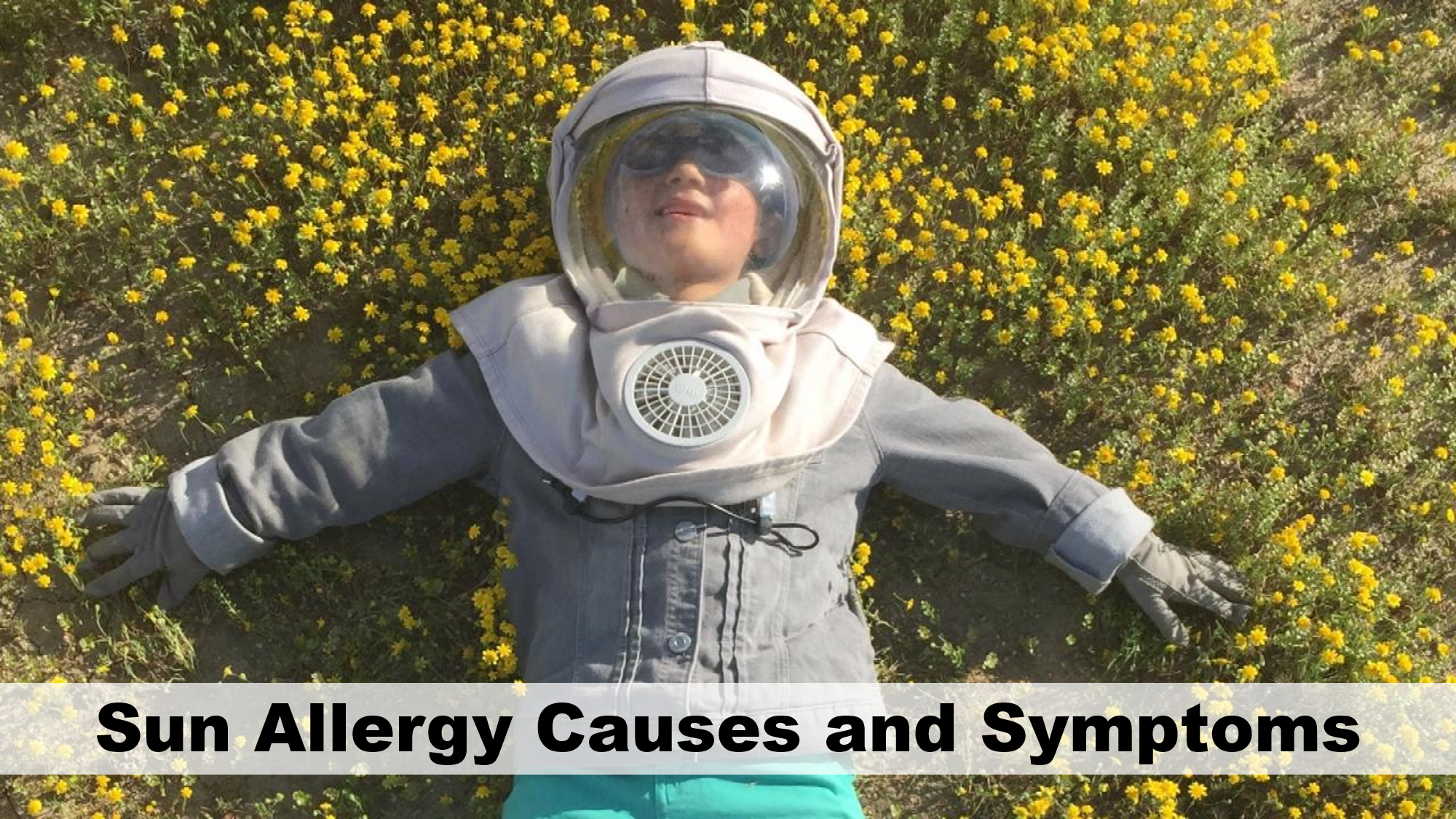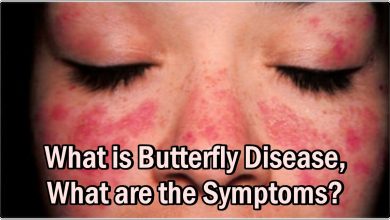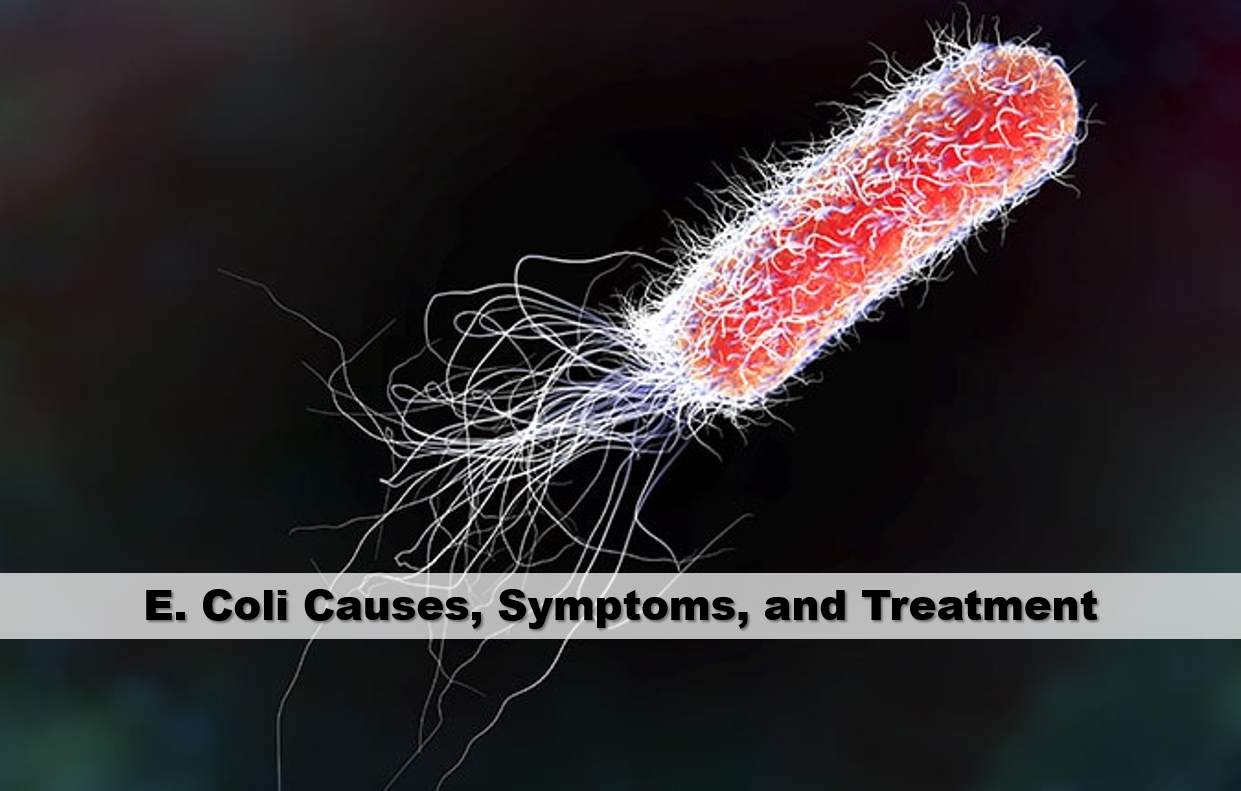Sun Allergy Causes and Symptoms (Why am I allergic to the sun?)

What causes sun allergy? Why am I allergic to the sun? How do you get rid of sun allergy? One of the most common allergies seen is sun allergy. Solar allergy is a condition defined as redness and itching on the skin as a result of sun exposure. Sun allergy is the reaction of the immune system to the sun as a result of sensitivity to the sun. The allergy may become chronic, but symptoms and problems can be treated. Symptoms of sun allergy often occur in areas of skin exposed to the sun. Symptoms may develop within minutes or hours of exposure to the sun. Let’s look at the causes and symptoms of sun allergy in the following text.

Sun Allergy
Sun allergy is the skin’s reaction to sunlight. The symptoms in most people may be itchy, redness, and rash. But in some cases, sun allergy may cause hives, blister, and swelling. There are many types of sun allergy. These include polymorphic light reaction (PMLE), actinic prurigo, chronic actinic dermatitis (CAD), and sun urticaria (skin rash) that cause inflammatory and itchy skin.
Sun Allergy Causes
Some medications, cosmetic products, and health problems can make the skin more sensitive to the sun. Although the exact cause of solar allergy is not known, it is emphasized that it may come from birth.
Sun Allergy Symptoms
The skin may be affected by the sun in various ways, depending on which condition causes the allergy. Some symptoms include:
- Erythema (Redness of the skin)
- Itching or painful
- Hard lump under the skin
- Skin peeling and bleeding
- Cracked skin or hives
These symptoms usually occur when exposed to the sun.
Sun Allergy Treatment
For the treatment of sun allergy, first, the stage of the sun allergy that you have experienced should be determined. In some cases, it may be sufficient to avoid sunlight for several days, whereas in advanced cases, medication is needed to eliminate symptoms.
Medications to Treat Sun Allergy
Some of the medicines that contain cortisone and are used in the treatment of sun allergy are sold on the market without a prescription, while some drugs with a stronger effect are sold by prescription. For severe allergic skin reactions, a short-term pill such as prednisone may be recommended by your doctor. The hydroxychloroquine used for malaria is also used in the treatment of certain types of solar allergy.
Sun Allergy Treatment with Therapy
If you have a severe sun allergy, it will be appropriate for you to be slowly exposed to the sun with the beginning of spring. Phototherapy is performed by directing ultraviolet rays to the areas exposed to the sun frequently with the help of a special lamp. This therapy usually lasts for several weeks. During this period of several weeks, phototherapy is applied several times a week, and the skin is made ready for the sun.
Sun Allergy Prevention
If you are experiencing sun allergy or your sensitivity to the sun is increasing, you can prevent it by following these ways:
- Reduce the time to stay in the sun: You should not stay in the sun between 10 am and noon.
- Wear sunglasses and protective clothing: Wearing long-sleeved clothing will help protect you from the sun. You should avoid thick or thin clothing because UV rays pass through your clothes to your skin. In this respect, you can buy special clothing that prevents UV rays.
- Use sun protection creams: You need to use sun protection creams with at least 15 SBF.





